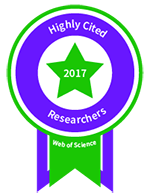
The mission of the Terrestrial Ecosystem Research and Regional Analysis group (TERRA-PNW) is to quantify and understand the response of terrestrial ecosystems to natural and human-induced changes such as climate, wildfire and land management practices.
Our lab has diverse interests that share the common focus of understanding the dynamics of land-based ecological communities. Our insights into climate and disturbance effects on ecological processes and global change are generated primarily by research on forest, woodland and shrubland ecosystems.
We approach questions at a variety of scales, from minutes to years and from leaf to region, and with a diversity of tools ranging from biogeochemical studies on soils, physiological studies at the leaf and whole plant level, micrometeorological studies on fluxes of carbon dioxide and water vapor from whole ecosystems, and controlled field experiments, to satellite remote sensing of land characteristics and biogeochemistry modeling of carbon, nitrogen and water cycling across the Pacific Northwest.
Dr. Beverly E. Law, Director and Professor


Approach
TERRA-PNW has three basic integrated activities:
- Ecosystem-level research combining field measurements and modeling to understand carbon, water and nitrogen cycling in terrestrial systems, and interactions with the atmosphere
- Remote sensing research to understand spatial and temporal variation in forest structure, composition, and age
- Modeling spatial and temporal variation in biogeochemical processes of terrestrial ecosystems across regions.
The combination of the three activities is used to understand the influence of climate, developmental stage, disturbance, and management on processes controlling carbon, water and nutrient cycling of terrestrial ecosystems seasonally and annually through decades.